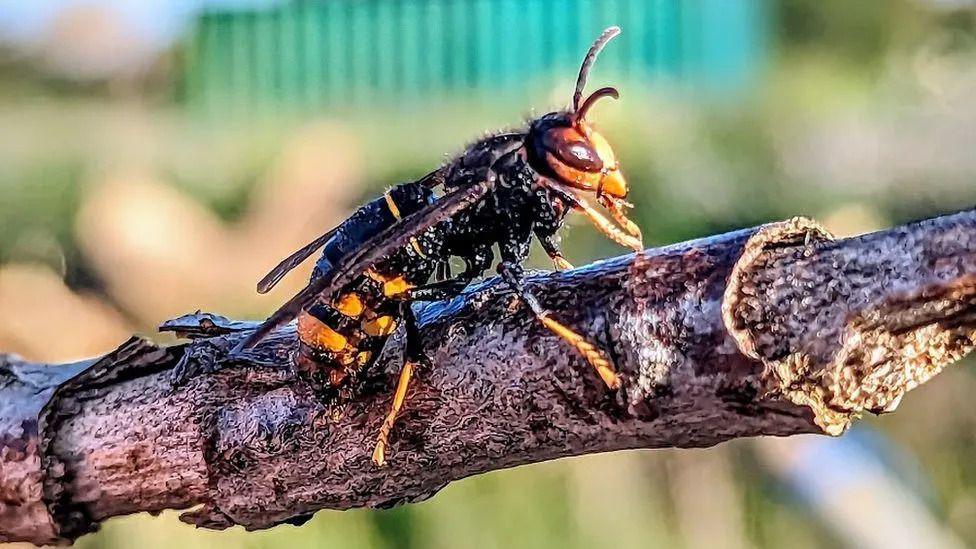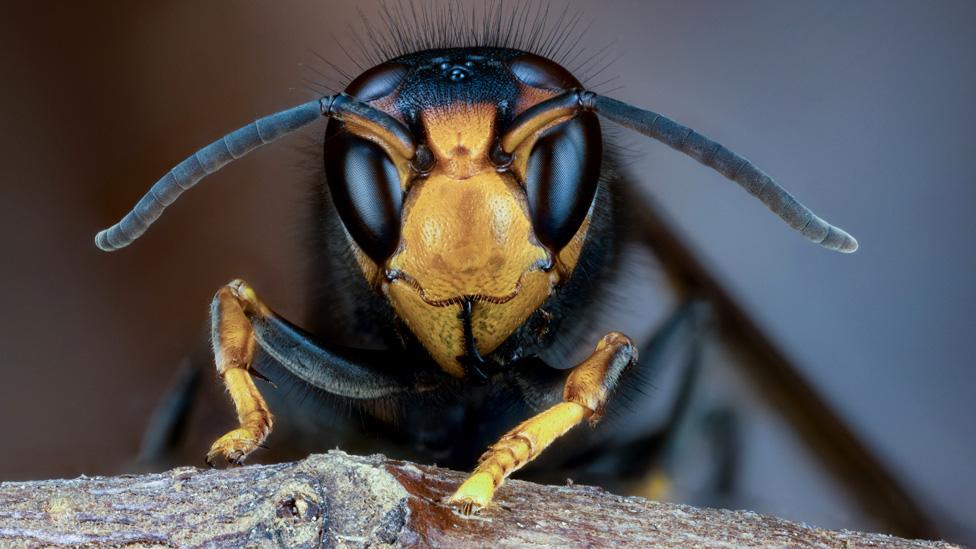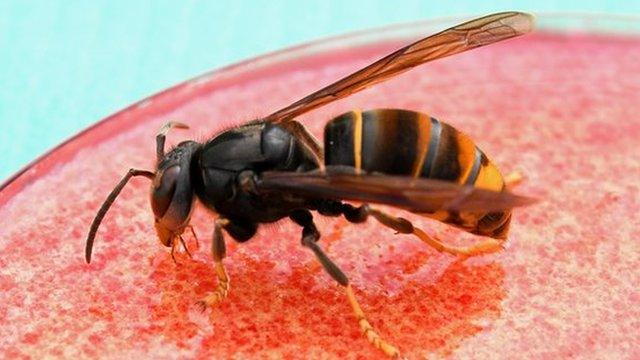Water company aims to tackle Asian hornet influx

The insects feed on native bees and wasps, damaging biodiversity
- Published
A pilot scheme has been launched by a water company in an attempt to tackle an influx of Asian hornets in south-east England.
In 2023, reports of the non-native species were made in areas including Eastbourne, Hastings, Newhaven and Rye in East Sussex, as well as Oxted in Surrey and Folkestone in Kent.
Southern Water has now installed traps at nine wastewater treatment sites across Kent and East Sussex to help stop their spread.
Matthew Wagstaff, the firm’s environmental advisor, said the insects were a "menace to our native species".
Asian hornets feed on native bees and wasps, so can have a devastating impact on local insect populations.
In Kent, thousands of bees have been killed by Asian hornets.
Speaking to BBC Radio Sussex, Mr Wagstaff said: “As concerning as their presence can be, I would urge our customers and communities not to take any action into their own hands.
“Instead, leave it to the experts and don’t put yourself at risk."
'Hotspot areas'
Southern Water has teamed up with the Asian Hornet Alert group to install the traps.
Michelle Elliot, a volunteer for Asian Hornet Alert said wastewater sites were hotspot areas as the insects liked water nearby, with trees and hedges the perfect places to build their nests.
"We are now entering the active season for Asian Hornets, and it is hoped that the traps set up late last year will catch their queens," she said.
Anna Mollins, technical trainer at Pestfix, said: "This is the time the hornets come out of hibernation and they are hard to miss due to their size.
"They have been in the UK for the last three years, so they are fairly new. But, they are quite a severe problem due to their aggressiveness."
The hornets are native to Southeast Asia but can be transported around the world in cargo.
They are widespread in mainland Europe and in recent years have been blown across the Channel to the UK.
Follow BBC Sussex on Facebook, external, on X, external, and on Instagram, external. Send your story ideas to southeasttoday@bbc.co.uk, external or WhatsApp us on 08081 002250.
- Published4 September 2023

- Published3 April 2024
